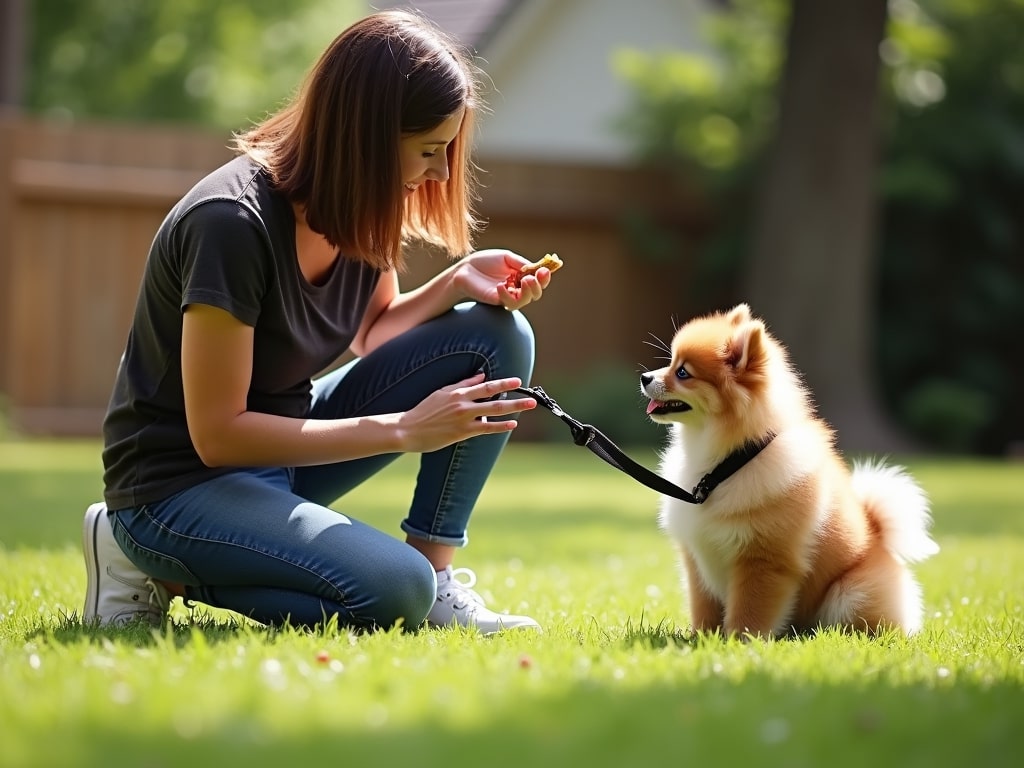Training your Pomeranian requires dedication, patience, and understanding of this spirited breed’s unique characteristics. Pomeranians, known for their vivacious personality and keen intelligence, respond exceptionally well to structured training approaches. Whether you’re welcoming a new Pomeranian puppy or working with an adult dog, establishing effective training techniques early on sets the foundation for a well-behaved and happy companion.
Understanding Your Pomeranian’s Learning Style
Pomeranians possess a distinctive blend of intelligence and independence that makes them both rewarding and challenging to train. These compact companions descend from larger sled-pulling breeds, inheriting their quick wit and determination. Their eagerness to learn, combined with their natural desire to please their owners, creates an ideal environment for successful training outcomes. Understanding their learning style involves recognizing their short attention spans, sensitivity to tone, and need for consistent positive reinforcement.
Recognition of your Pomeranian’s intelligence level helps tailor training methods effectively. These dogs excel in problem-solving activities and respond particularly well to mental stimulation combined with physical exercise. Their smart nature means they can quickly grasp new commands, but it also means they may try to outsmart their owners if training sessions become predictable or monotonous.
Essential Training Fundamentals
House Training and Basic Commands
Establishing solid foundational training is crucial for developing a well-mannered Pomeranian. Begin with basic commands like “sit,” “stay,” “come,” and “leave it.” Consistency in command usage and reward timing significantly impacts training success. House training requires particular attention due to the breed’s small bladder size and sometimes stubborn nature. Create a regular schedule for potty breaks, especially after meals, naps, and play sessions.
Positive reinforcement remains the most effective training method for Pomeranians. Use high-value treats, praise, and gentle encouragement to reward desired behaviors. Avoid harsh corrections or punishment, as these can damage your relationship with your sensitive companion and potentially lead to anxiety or defensive behaviors. Remember that patience is key – some Pomeranians may take longer to house train compared to larger breeds.
Socialization and Behavior Modification
Early socialization plays a vital role in developing a well-adjusted Pomeranian. Expose your pet to various environments, people, and other animals during their formative weeks and months. This exposure helps prevent common behavioral issues like excessive barking, anxiety, and territorial aggression. Create positive associations with new experiences through treats and praise, ensuring your Pomeranian develops confidence and social skills.
Addressing behavioral challenges requires understanding the root cause of unwanted behaviors. Common issues like excessive barking, resource guarding, or separation anxiety need targeted training approaches. Professional trainers can provide valuable insights and techniques specific to your Pomeranian’s needs. Remember that consistency among all family members is crucial for successful behavior modification.
Advanced Training Techniques
Pomeranians excel in advanced training activities that challenge their minds and bodies. Agility training, trick training, and competitive obedience can provide excellent outlets for their energy and intelligence. These activities strengthen the bond between owner and pet while providing necessary mental stimulation. Start with simple tricks and gradually increase complexity as your Pomeranian masters each skill.
Key Takeaways
- Positive reinforcement is essential for successful Pomeranian training
- Consistency and patience are crucial elements in the training process
- Early socialization prevents common behavioral issues
- Mental stimulation is as important as physical exercise
- Professional guidance can help address specific training challenges
- Regular training sessions should be short but engaging
Frequently Asked Questions
Q: How long does it typically take to house train a Pomeranian?
A: House training a Pomeranian usually takes 4-6 months, though some may require up to a year. Success depends on consistency, proper scheduling, and positive reinforcement. Remember that smaller breeds like Pomeranians have smaller bladders and may need more frequent potty breaks.
Q: What’s the best age to start training a Pomeranian puppy?
A: Begin basic training and socialization as soon as you bring your puppy home, typically around 8-12 weeks old. Early training establishes good habits and prevents behavioral issues. Focus on positive experiences and keep sessions short and fun.
Q: How do I stop my Pomeranian from excessive barking?
A: Address excessive barking through consistent training, teaching the “quiet” command, and removing triggers when possible. Reward quiet behavior and avoid yelling, which your Pomeranian might interpret as joining in. Consider professional help for persistent barking issues.

